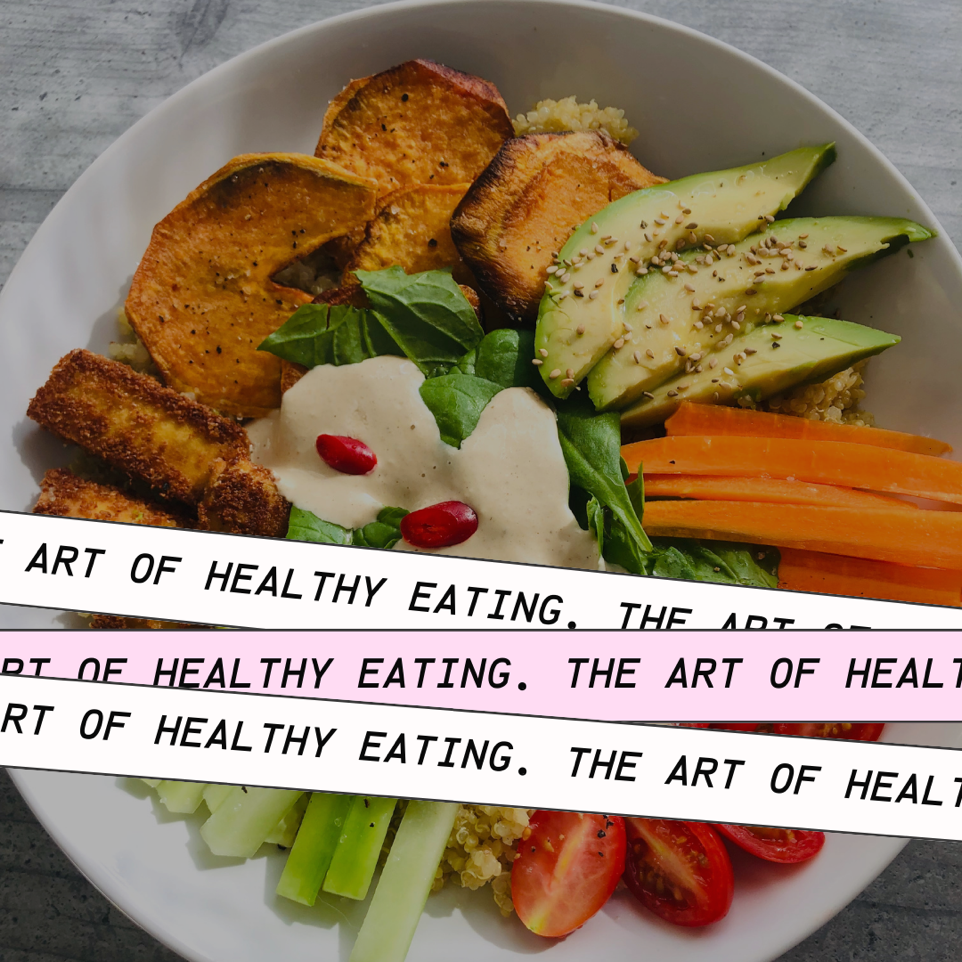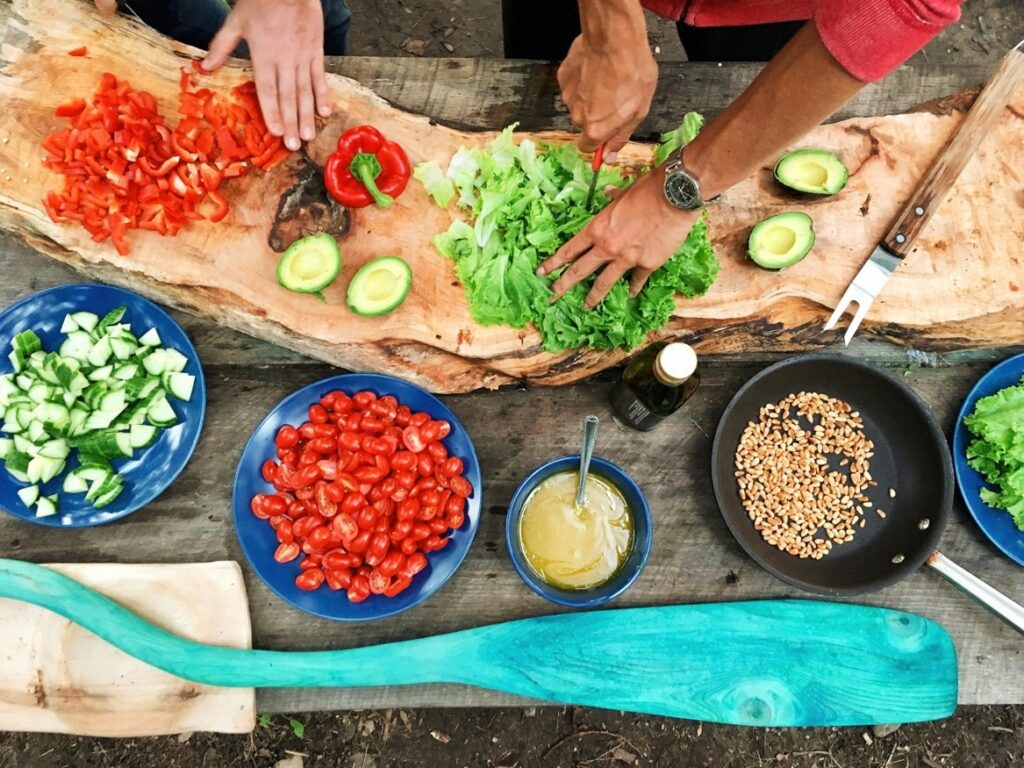Why I Went Plant-Based: Healing My Gut and Loving Every Bite
A plant-based diet isn’t just a trend—it’s a powerful way to nourish your body, support your gut, and boost your overall health. Packed with fiber, antioxidants, and essential nutrients, plant-based foods are a cornerstone of gut health. But for me, it wasn’t just about the science—it was about finding relief.
For years, I struggled with stomach bloat, pain, and constant discomfort. I felt like I was at war with my own body. After countless doctor visits and failed attempts to pinpoint the issue, I decided to take matters into my own hands. Since I was already cutting out dairy due to food allergies, I thought, Why not go all in and try a vegan diet?
The results were life changing. Within weeks, the inflammation that had been wreaking havoc on my gut started to subside. I had more energy, my skin cleared up, and—most importantly—I finally felt like myself again.
Now, I’ll be honest: I’ve always loved vegetables, so that part was easy for me. But if you’re someone who doesn’t naturally gravitate toward greens, don’t worry! There are so many ways to add some pazazz to your plant-based meals. And let’s not forget about beans—they’re a protein and fiber powerhouse that can transform any dish.
In this blog, I’ll share why a plant-based diet is so beneficial for your gut, how it helped me heal, and a few delicious, gut-healing recipes to get you started. Whether you’re a veggie lover or a skeptic, there’s something here for everyone.

Why a Plant-Based Diet is a Game-Changer for Gut Health
- Fiber is Your Friend: Plant-based foods are loaded with fiber, which feeds the good bacteria in your gut and keeps your digestive system running smoothly.
- Anti-Inflammatory Powerhouse: Fruits, vegetables, nuts, and seeds are packed with antioxidants that reduce inflammation—one of the root causes of an unhealthy gut.
- Prebiotic Magic: Foods like garlic, onions, and bananas are natural prebiotics that nourish your gut microbiome.
- Diverse Microbiome: Eating a variety of plant-based foods encourages a diverse and balanced gut, which is key to overall health.
My Journey to a Plant-Based Lifestyle
When I first considered going plant based, I was nervous. Could I really give up cheese? Would I feel deprived? But the truth is, it was much easier than I thought. Here’s what helped me:
- Focusing on What I Could Eat, Not What I Couldn’t: Instead of thinking about the foods I was cutting out, I got excited about all the new foods I could try—jackfruit tacos, lentil Bolognese, and creamy cashew Alfredo, to name a few.
- Experimenting with Flavors: I discovered new spices, sauces, and cooking techniques that made my meals anything but boring.
- Embracing Beans: Beans became my best friend. They’re versatile, affordable, and packed with protein and fiber.
- Cashew cheese: So delicious and you can crumble it on salads or even get the spreadable kind that comes in many flavors to enjoy with some crackers. You won’t miss the real stuff.
Gut-Healing Plant-Based Recipes

Here are three of my go to simple recipes to help achieve ultimate gut health:
1. Creamy Gut-Healing Smoothie Bowl
This smoothie bowl is packed with fiber, probiotics, and anti-inflammatory ingredients to kickstart your day.
Ingredients:
- 1 frozen banana
- 1/2 cup frozen berries (blueberries or raspberries work well)
- 1/2 cup unsweetened almond milk (or any plant-based milk)
- 1 tablespoon chia seeds
- 1 tablespoon almond butter
- 1/2 teaspoon cinnamon
- 1/4 cup dairy-free yogurt (with live cultures for probiotics)
Toppings:
- Fresh berries
- Sliced banana
- Granola (I use gluten-free)
- Coconut flakes
Instructions:
- Blend the frozen banana, berries, almond milk, chia seeds, almond butter, cinnamon, and yogurt until smooth and creamy.
- Pour into a bowl and top with fresh berries, sliced banana, granola, and coconut flakes.
- Enjoy immediately for a gut-healthy breakfast!
2. Roasted Garlic and Lemon Chickpea Salad
This hearty salad is rich in fiber, protein, and prebiotics to support your gut.
Ingredients:
- 1 can chickpeas, drained and rinsed
- 1 head of garlic
- 2 cups mixed greens (spinach, kale, or arugula)
- 1/2 cup cherry tomatoes, halved
- 1/4 cup red onion, thinly sliced
- 2 tablespoons olive oil
- Juice of 1 lemon
- Salt and pepper to taste
Instructions:
- Preheat your oven to 400°F (200°C).
- Cut the top off the head of garlic, drizzle with olive oil, wrap in foil, and roast for 30 minutes.
- Toss the chickpeas with 1 tablespoon olive oil, salt, and pepper, and spread them on a baking sheet. Roast for 20 minutes, stirring halfway through.
- In a large bowl, combine the mixed greens, cherry tomatoes, and red onion.
- Once the garlic is roasted, squeeze the cloves out of their skins and mash them into a paste. Mix with the remaining olive oil and lemon juice to create a dressing.
- Add the roasted chickpeas to the salad, drizzle with the garlic-lemon dressing, and toss to combine.
- Serve as a light lunch or side dish.
3. Gut-Friendly Lentil and Vegetable Soup
This comforting soup is loaded with fiber-rich lentils and gut-healing vegetables.
Ingredients:
- 1 cup green or brown lentils, rinsed
- 1 tablespoon olive oil
- 1 onion, diced
- 2 carrots, diced
- 2 celery stalks, diced
- 3 garlic cloves, minced
- 1 teaspoon ground turmeric
- 1 teaspoon ground cumin
- 4 cups vegetable broth
- 1 can diced tomatoes
- 2 cups spinach or kale
- Salt and pepper to taste
Instructions:
- Heat the olive oil in a large pot over medium heat. Add the onion, carrots, and celery, and sauté for 5-7 minutes until softened.
- Add the garlic, turmeric, and cumin, and cook for another minute until fragrant.
- Stir in the lentils, vegetable broth, and diced tomatoes. Bring to a boil, then reduce the heat and simmer for 25-30 minutes until the lentils are tender.
- Stir in the spinach or kale and cook for another 2-3 minutes until wilted.
- Season with salt and pepper to taste.
- Serve warm with a slice of whole-grain or sourdough bread for a complete, gut-healthy meal.
Tips for Thriving on a Plant-Based Diet
- Start Slowly: If you’re new to plant-based eating, gradually incorporate more fruits, vegetables, legumes, and whole grains into your meals.
- Focus on Variety: Eat a wide range of plant-based foods to ensure you’re getting all the nutrients your gut needs.
- Stay Hydrated: Drink plenty of water to help fiber move through your digestive system smoothly.
- Experiment with Fermented Foods: Add plant-based fermented foods like sauerkraut, kimchi, and tempeh to boost your probiotic intake.

Your Turn
Are you ready to give plant-based eating a try? Whether you’re looking to heal your gut, boost your energy, or just explore new flavors, a plant-based diet has something to offer everyone.
Let me know in the comments—what’s your favorite plant-based meal? Or, if you’re new to this, what’s holding you back? Let’s chat!
- Laurie
